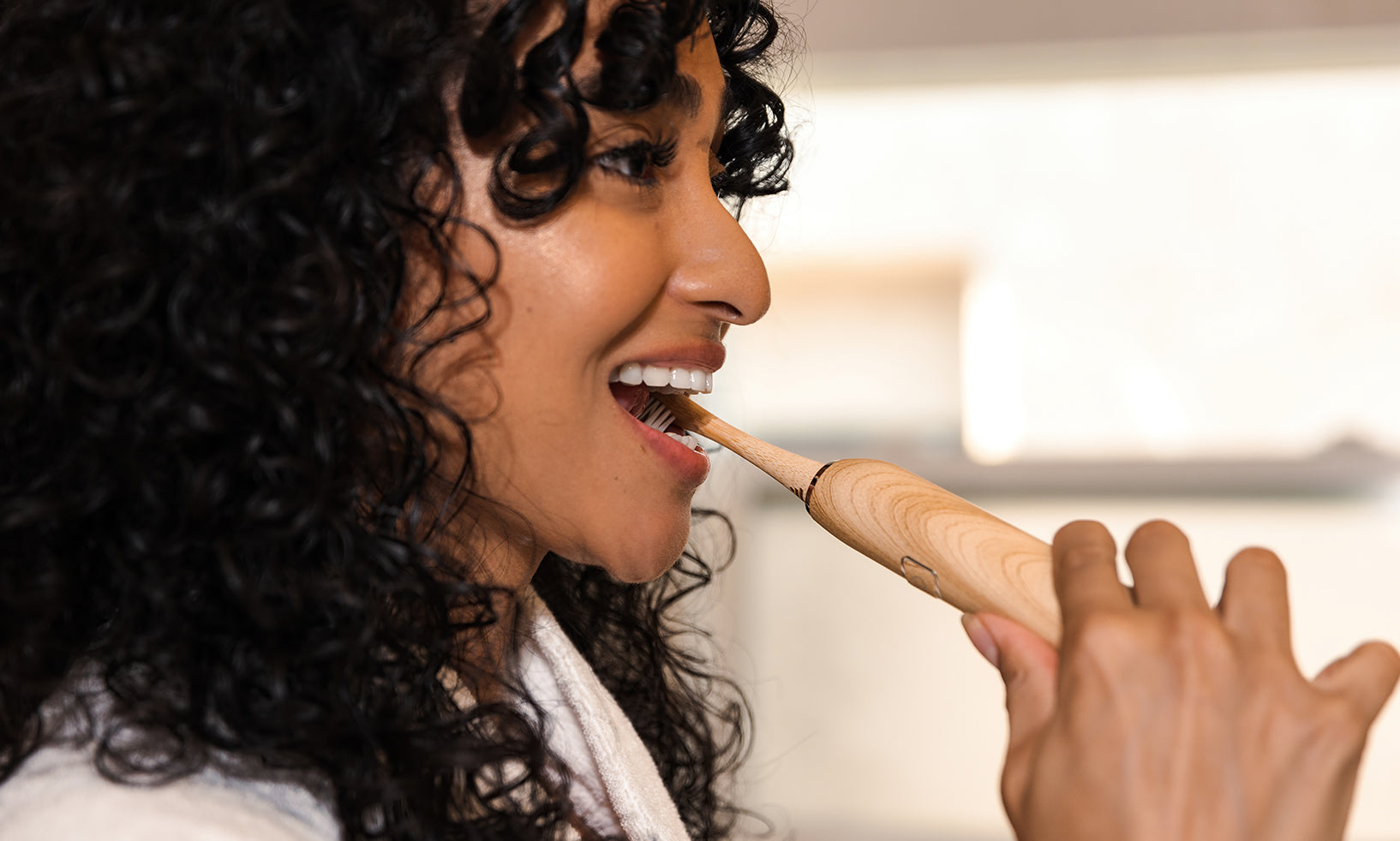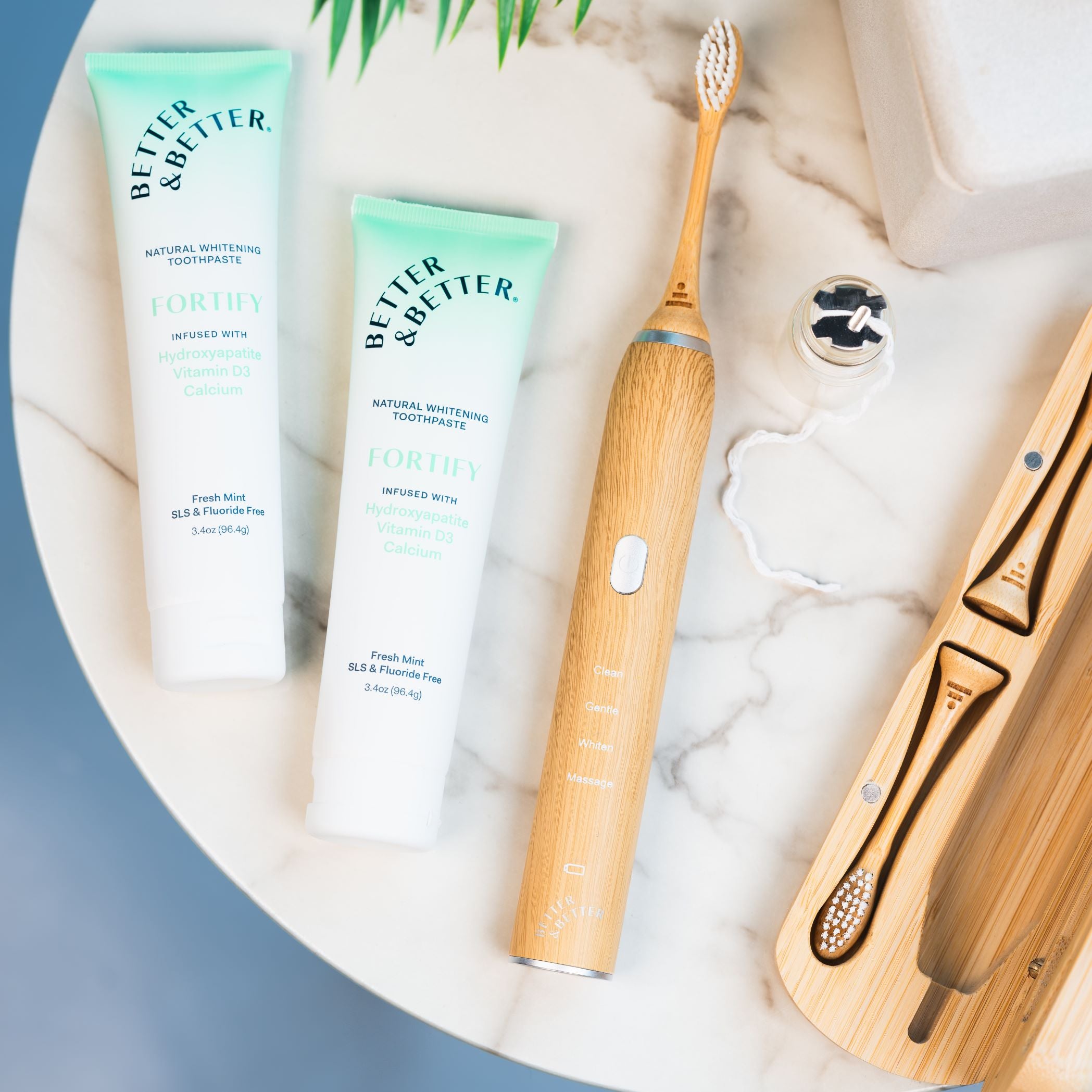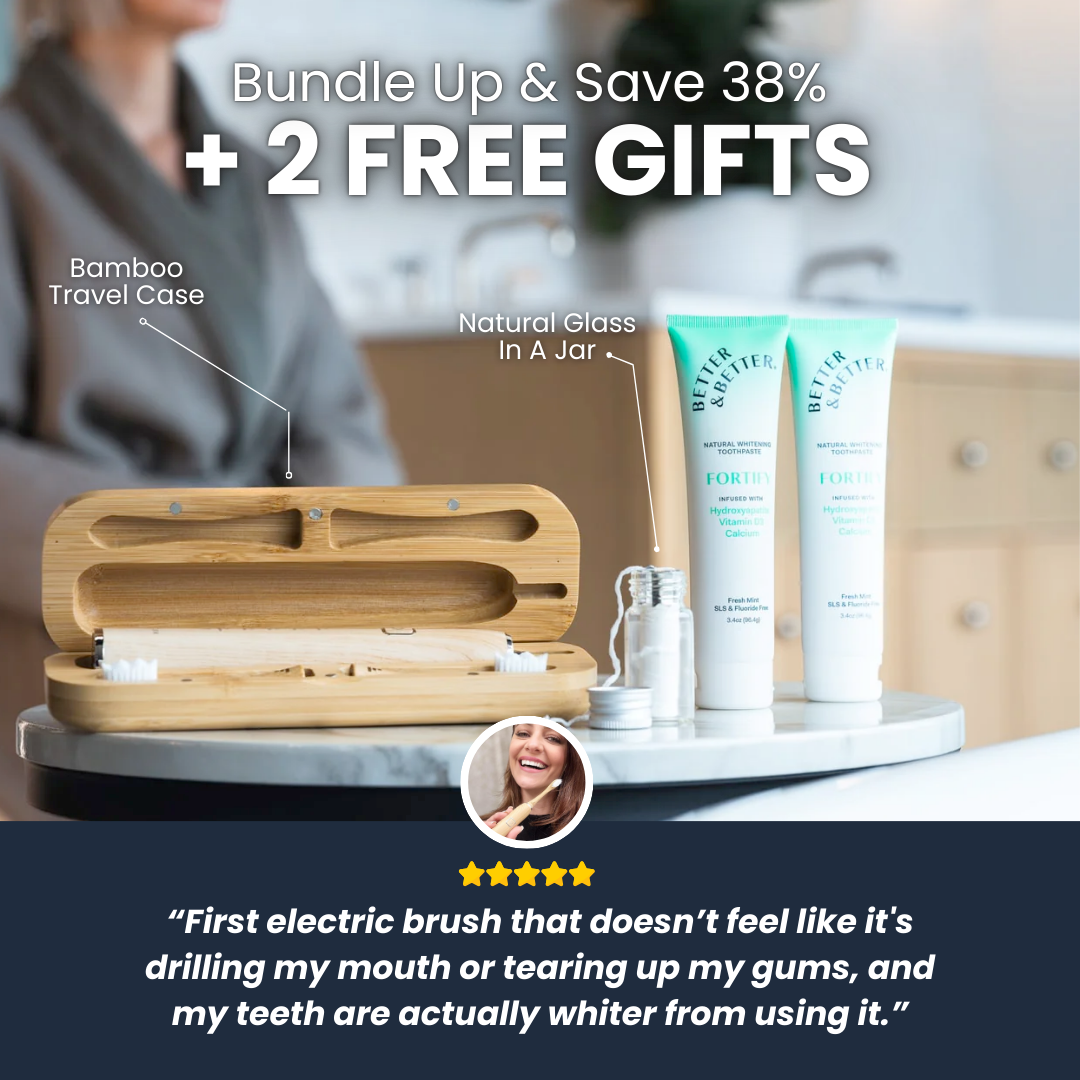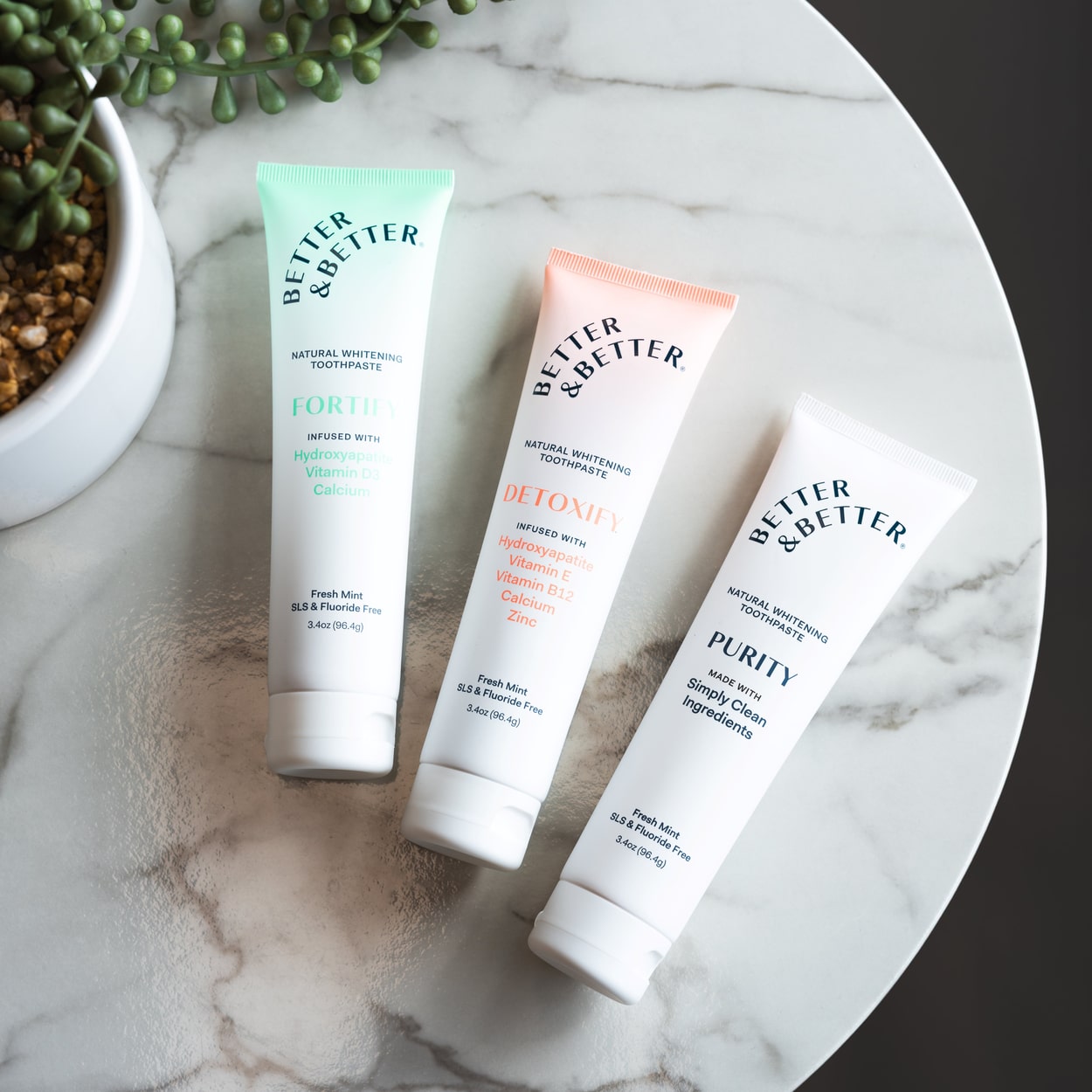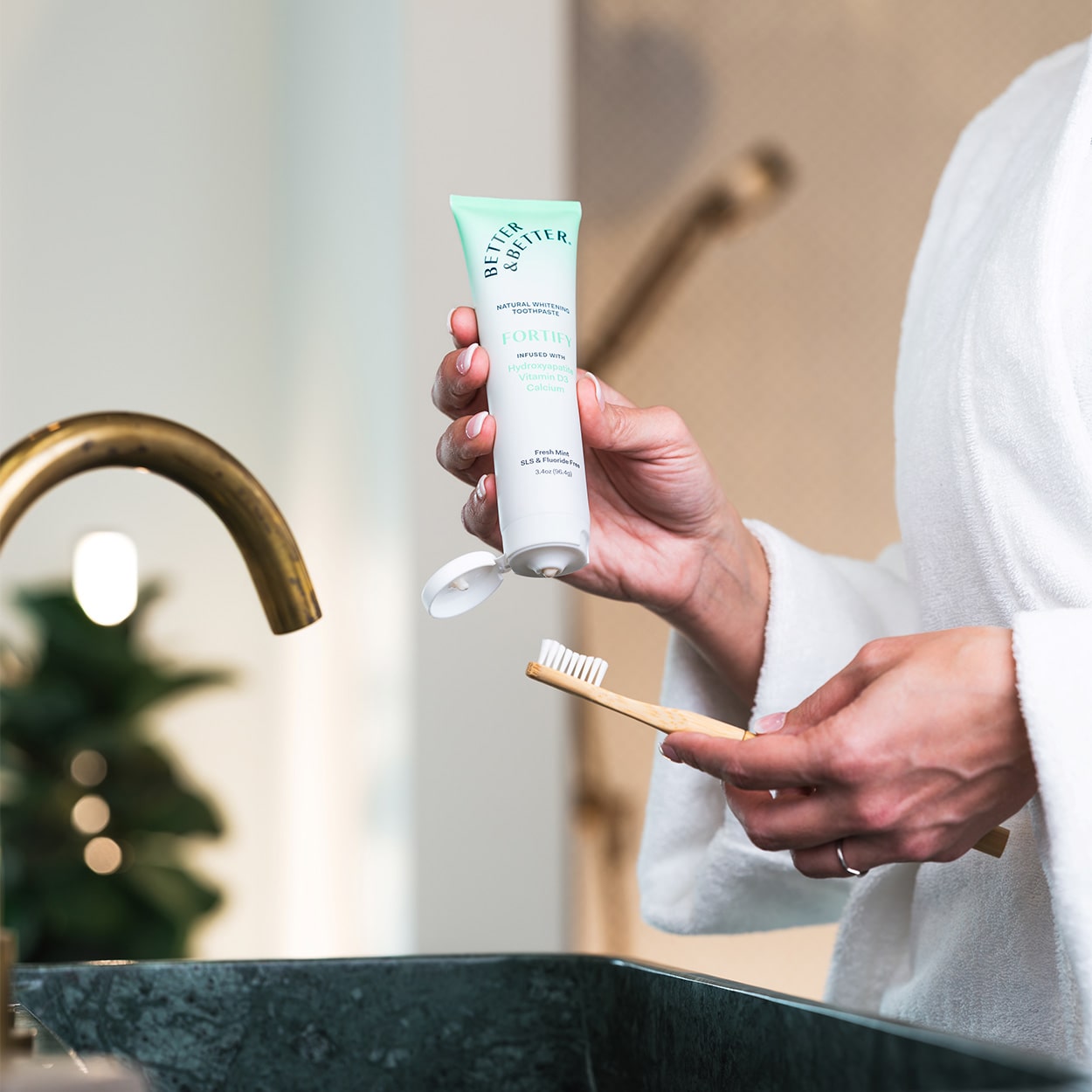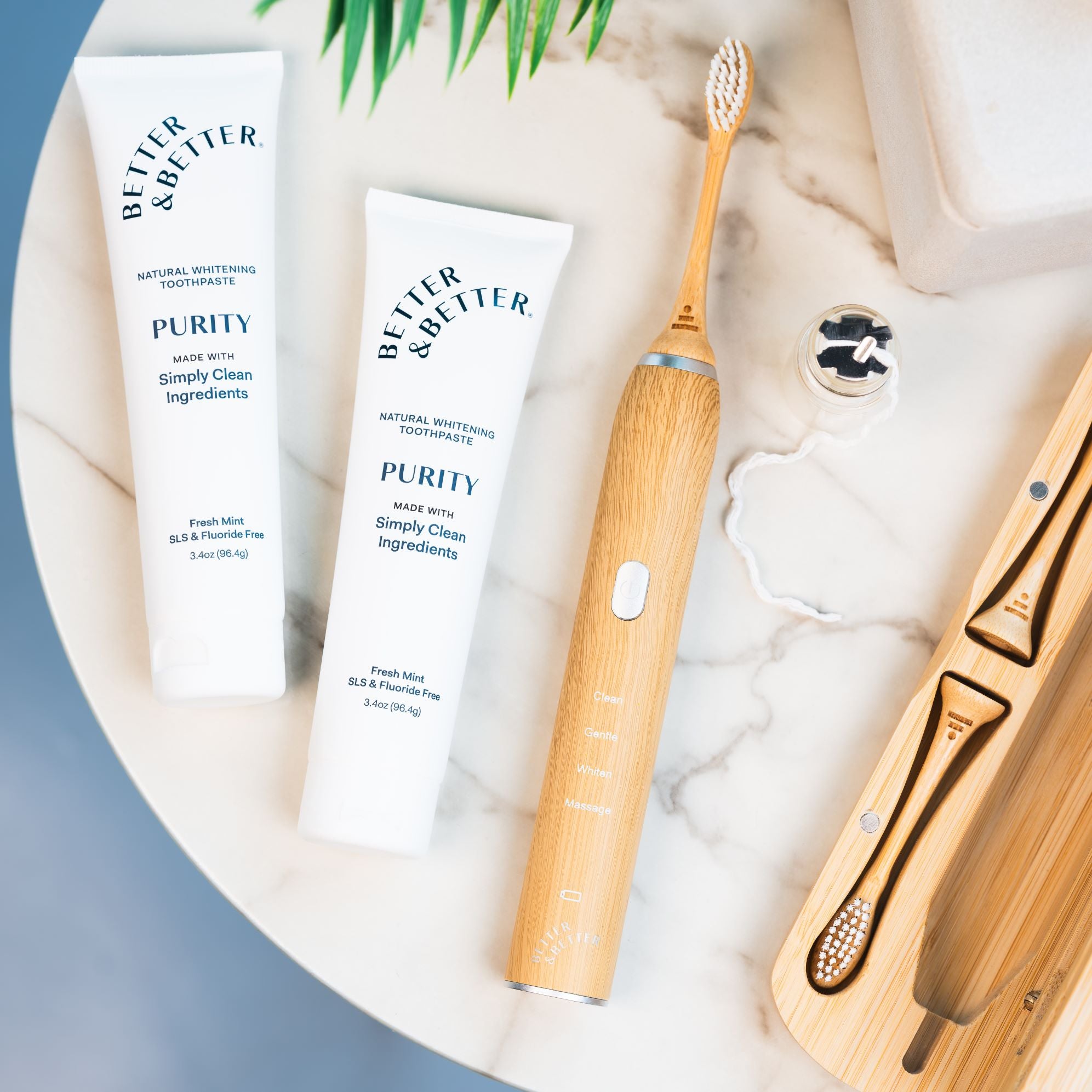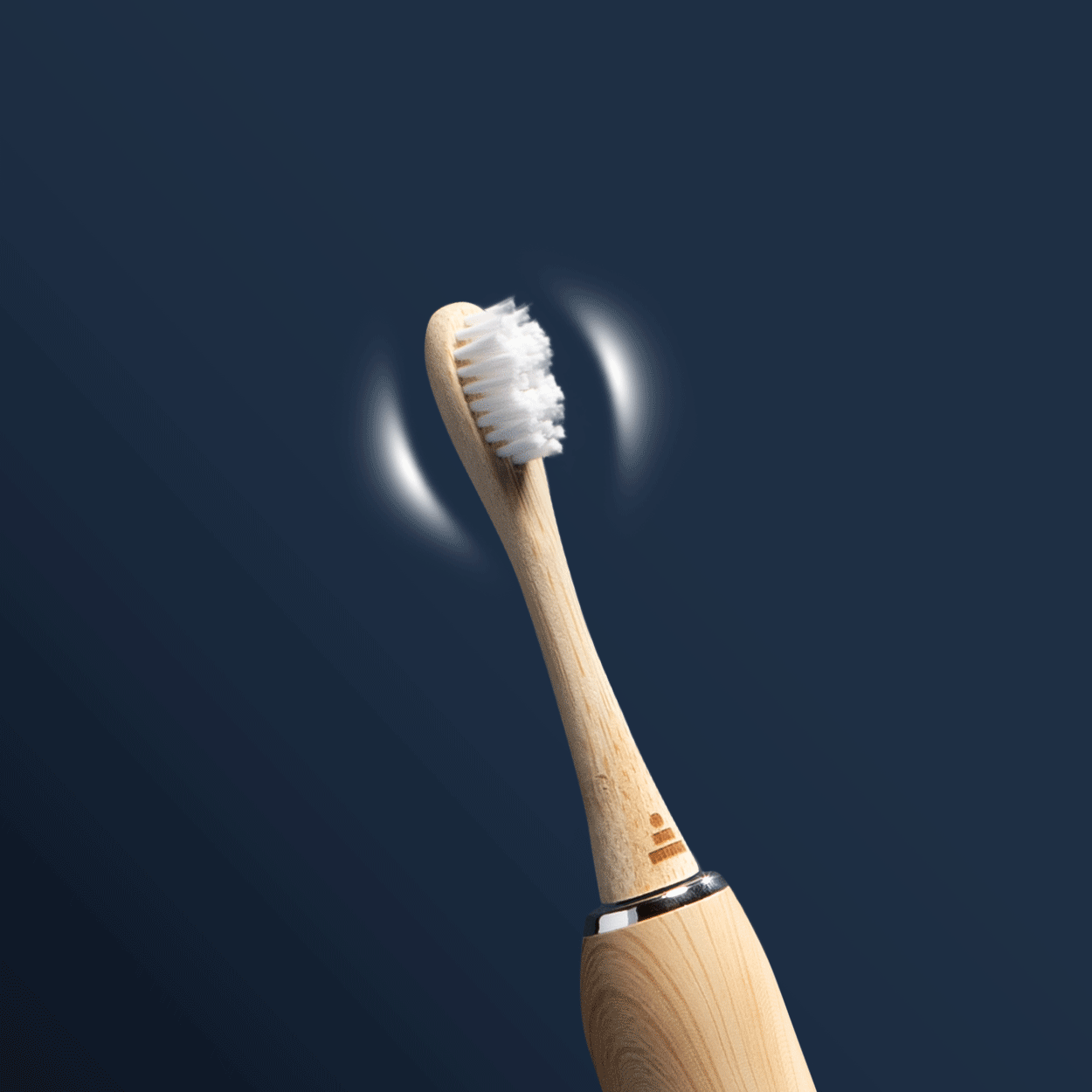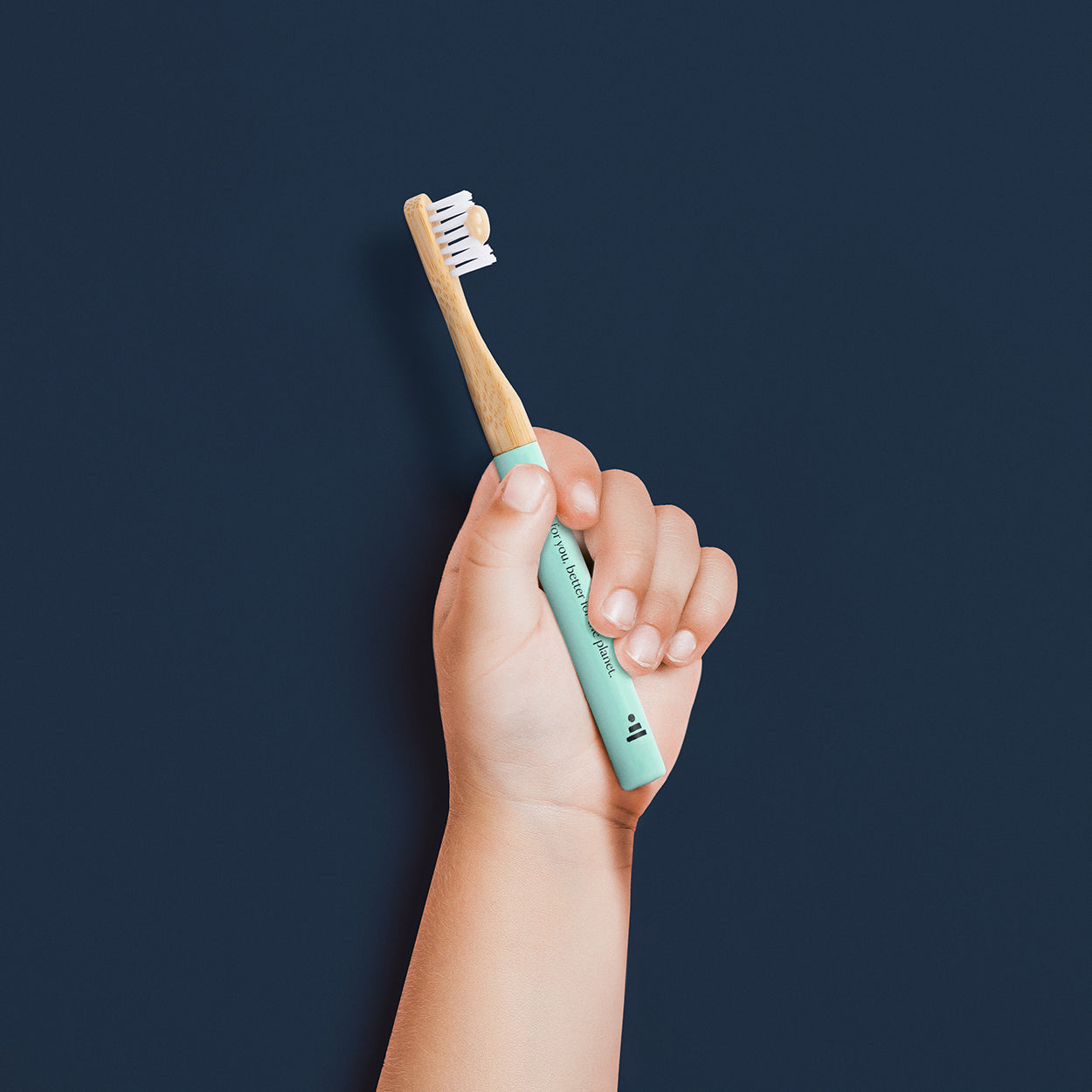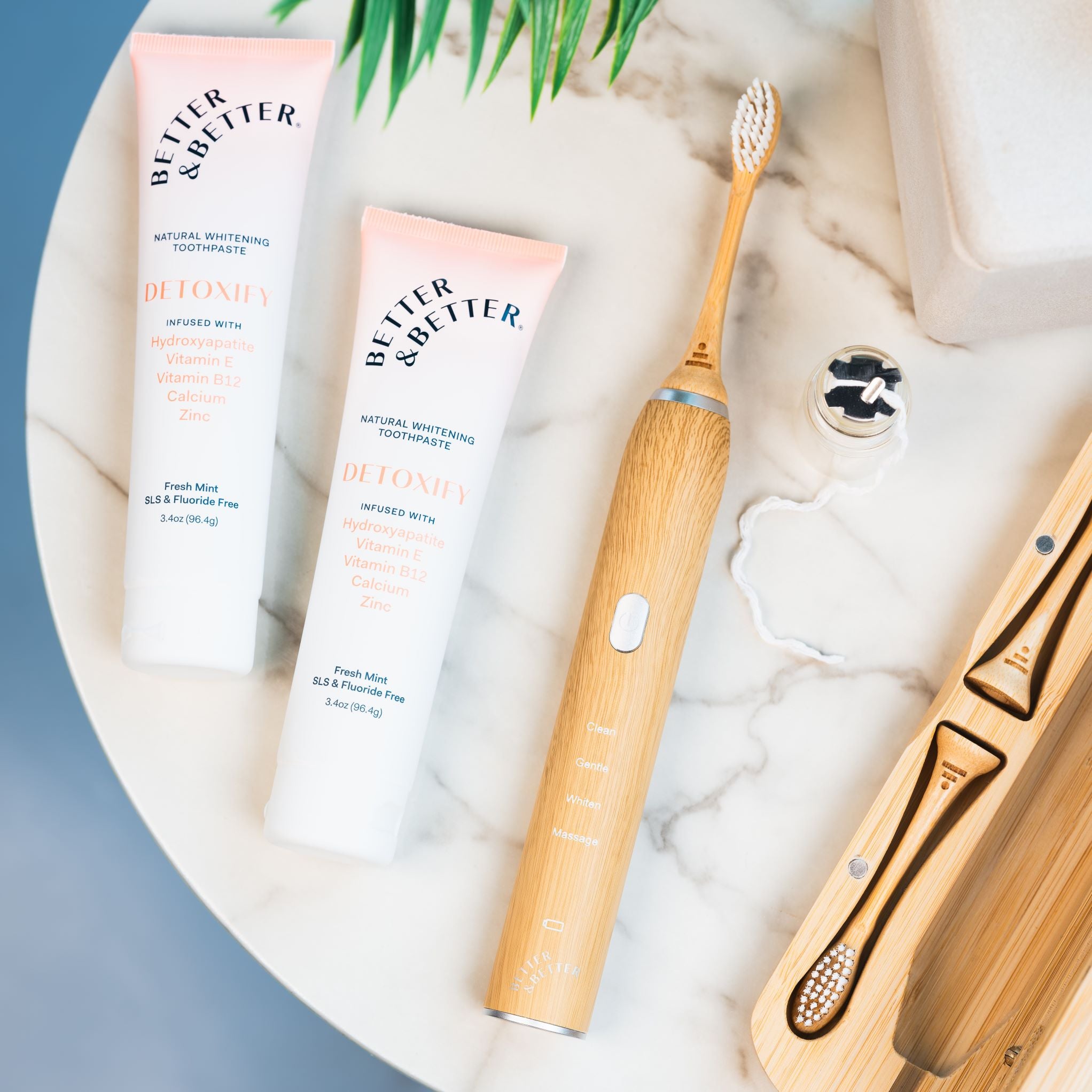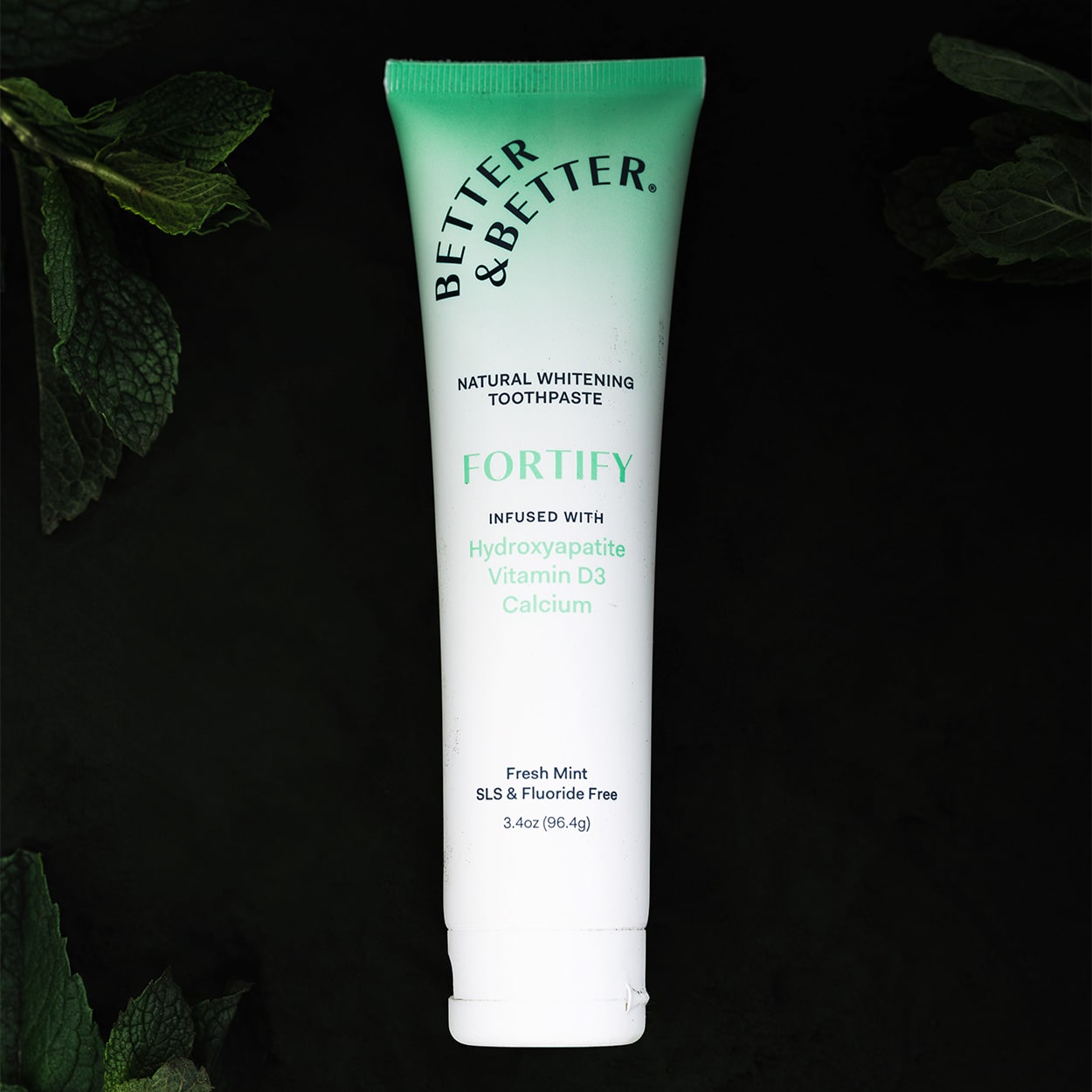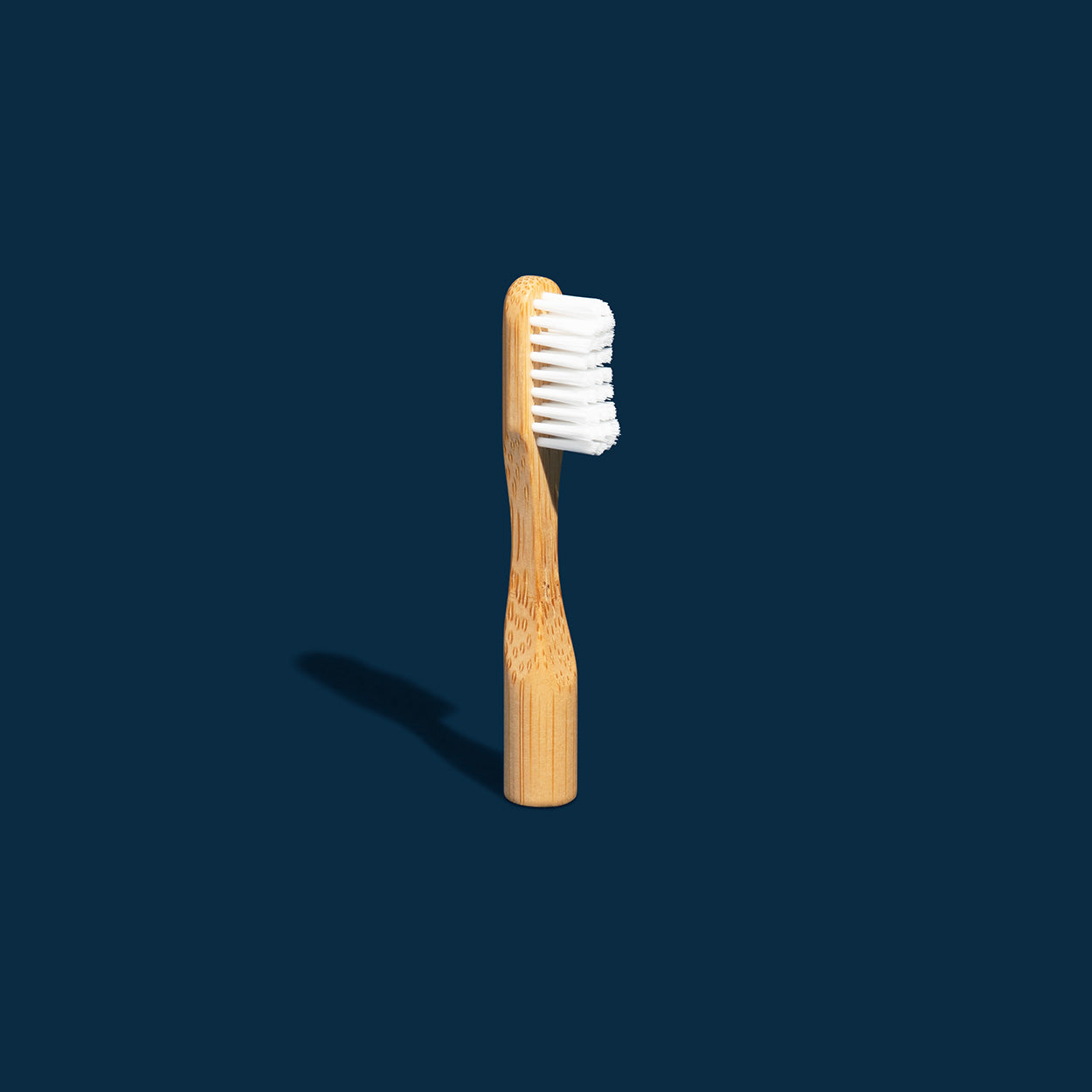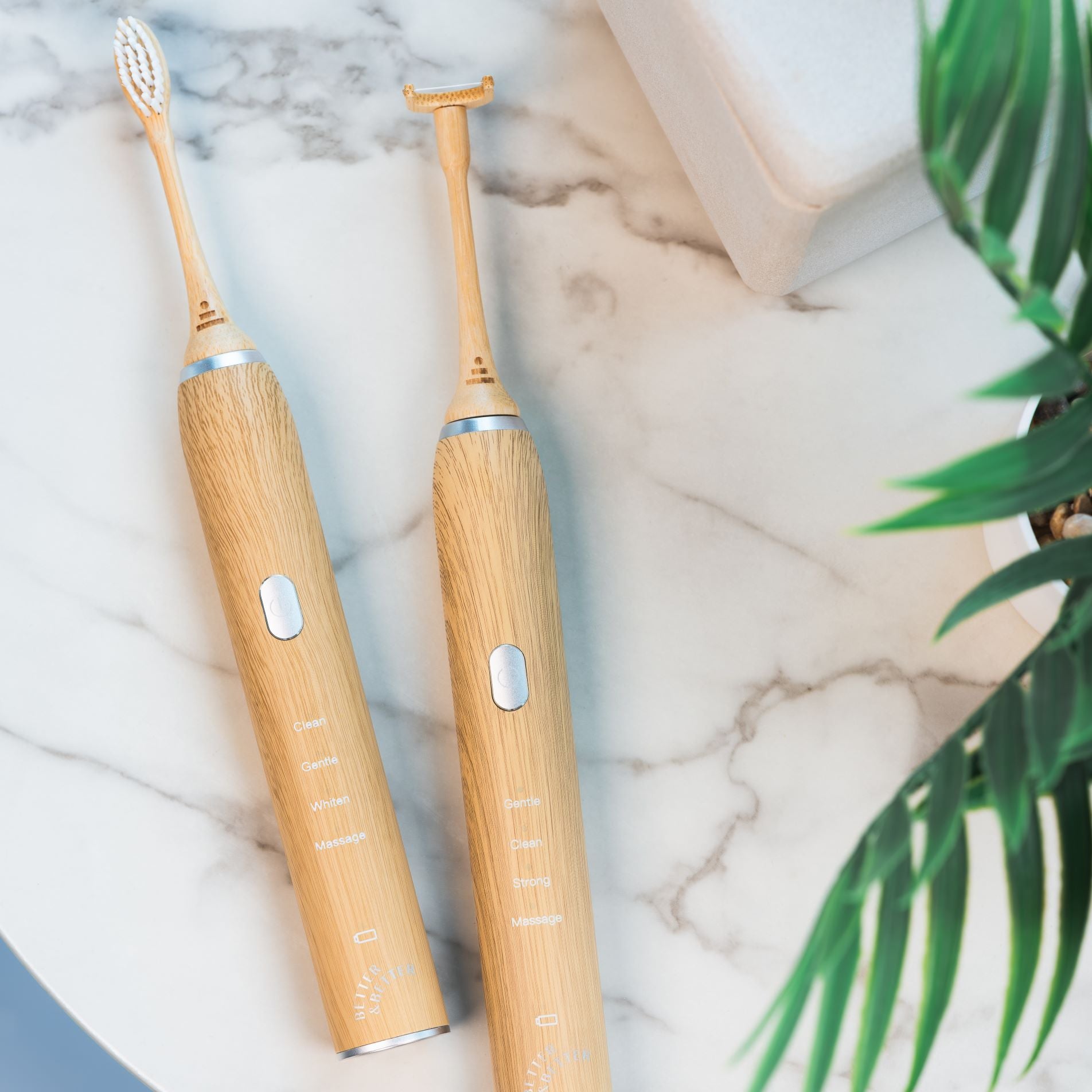If toothpaste wasn’t palatable, brushing wouldn’t be a pleasant experience. The active ingredients that protect your teeth are slightly bitter or flavorless. That’s why toothpaste needs a hint of sweetness to make it more palatable.
However, not all toothpaste sweeteners are created equal.
If you’re reading this, chances are you’ve seen xylitol on an ingredient label and wondered, What the heck is this?
Xylitol is a natural sweetener that looks and tastes like sugar, but with 40% fewer calories. (Pro tip: it’s pronounced “zy-luh-tall”).
Xylitol is one of many ingredients that can make toothpaste more appealing. But unlike artificial sweeteners, xylitol does more than make toothpaste taste better—it cleans and protects your teeth too.
Coming up, we’ll break down all the benefits of xylitol toothpaste and answer some common questions. But first, a quick biology lesson.
What Is Xylitol Toothpaste?
Xylitol toothpaste is infused with—you guessed it—xylitol: a natural alternative to sugar that provides a hint of natural sweetness when you brush and improves your dental health too.
Xylitol is classified as a sugar alcohol, but that’s a bit misleading since it’s neither sugar nor alcohol. Rather, xylitol is a colorless carbohydrate that comes in crystal form. It’s found in fruits and vegetables like plums, strawberries, pumpkins, corn, and birch trees.
Although xylitol tastes just as sweet as sugar, it only has 2.4 calories per gram compared to four grams for standard sugar. It also creates a cooling sensation in the mouth, making it ideal for oral hygiene.
Nearly all toothpaste contains some type of sweetener. But unlike aspartame, sucralose, and saccharin, xylitol comes from plants—not a lab.
Xylitol might sound futuristic, but it’s been around for more than a century. It was discovered in 1891 by Emil Fisher, a German chemist, and gained popularity during World War II to address sugar shortages.
Today you’ll find xylitol in toothpaste as well as mouthwash, breath mints, and chewing gum.
3 Benefits of Xylitol Toothpaste
The key advantage of xylitol over other sweeteners is that it protects your teeth on top of providing a hint of natural sweetness. Let’s dive into the specifics.
1. Xylitol Can Prevent Cavities
Xylitol is anticariogenic, which is a fancy way to say it prevents cavities (AKA “canaries”) and slows the formation of new cavities. That’s because xylitol stops oral bacteria from sticking to your teeth and gums.
Research from 2019 even suggests xylitol can be more effective than fluoride for cavity prevention. This echoes a 2015 review which found that brushing with xylitol toothpaste reduced the frequency of cavities by 13% compared to standard fluoride toothpaste.
2. Xylitol Increases Saliva Production
Xylitol stimulates the flow of saliva, according to Mayo Clinic. This obviously keeps your mouth moist and comfortable, but saliva also carries essential proteins and minerals that strengthen your teeth, prevent bad breath, and maintain a healthy pH level in your mouth.
Learn more about xylitol for dry mouth.
3. Xylitol Protects Tooth Enamel
Xylitol reduces levels of oral bacteria like Streptococcus mutans which are notorious for wearing down enamel and causing tooth decay. Further, xylitol can bind with calcium, a process that reinforces enamel.
Tooth enamel is the strongest material in your body, but it can’t be repaired if it wears down. That’s why it’s so important to maintain habits that protect your enamel.
Is Xylitol Vegan?
Yes, xylitol is vegan. It’s extracted from fruits, vegetables, and birch bark so doesn’t involve any animal byproducts whatsoever.
We know how challenging it can be to find vegan toothpaste. That’s why all of our products at Better & Better are 100% vegan and Leaping Bunny certified, meaning our ingredients are never tested on animals.
When it comes to artificial sweeteners, the ingredients themselves are vegan. However, since they’re often developed in labs, animal testing is common. That’s why it’s important to make sure your toothpaste—or any product for that matter—is cruelty-free.
Does Xylitol Toothpaste Have Any Side Effects?
There are no serious health risks associated with xylitol toothpaste. It has long been approved by the US Food and Drug Administration (FDA) for consumption.
Most of the research into xylitol’s potential side effects involves eating it, not brushing your teeth with it. Consuming xylitol in large amounts may cause minor digestive side effects. But again, that’s only if you swallow it.
The biggest concern with xylitol doesn’t involve people—it involves pets. Xylitol is extremely toxic for dogs. If your dog consumes it, take them to the veterinarian ASAP.
It’s Time to Take Toothpaste More Seriously
For many years, toothpaste was an afterthought. People bought whatever was on sale and didn’t think twice about the ingredients. Thankfully, the tide is turning.
At Better & Better, we take toothpaste as seriously as any health product. That means sourcing ingredients that are ideal for you—and the planet. All of our natural whitening toothpaste is fluoride-free, SLS-free, and 100% vegan.
Whether you need an energy boost, immune support, or extra protection for sensitive teeth, we’ll give you a better way to brush.


